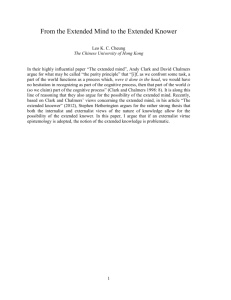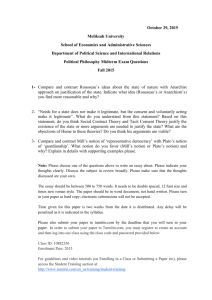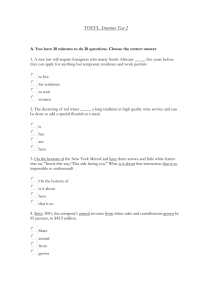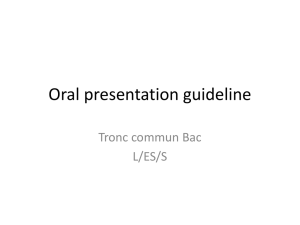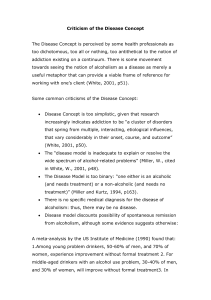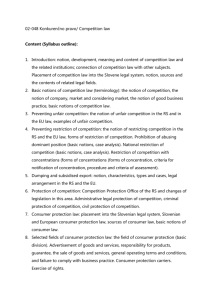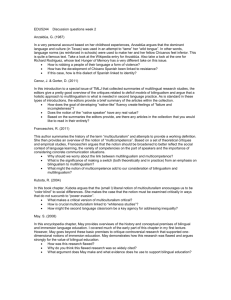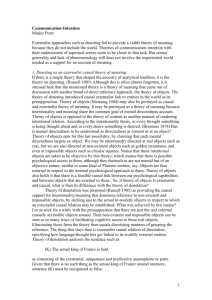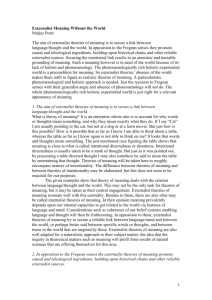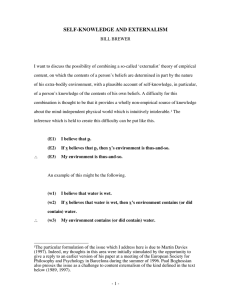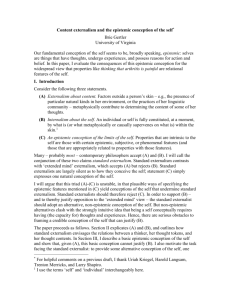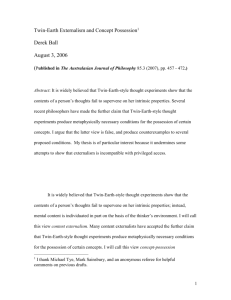Title - SIFA
advertisement
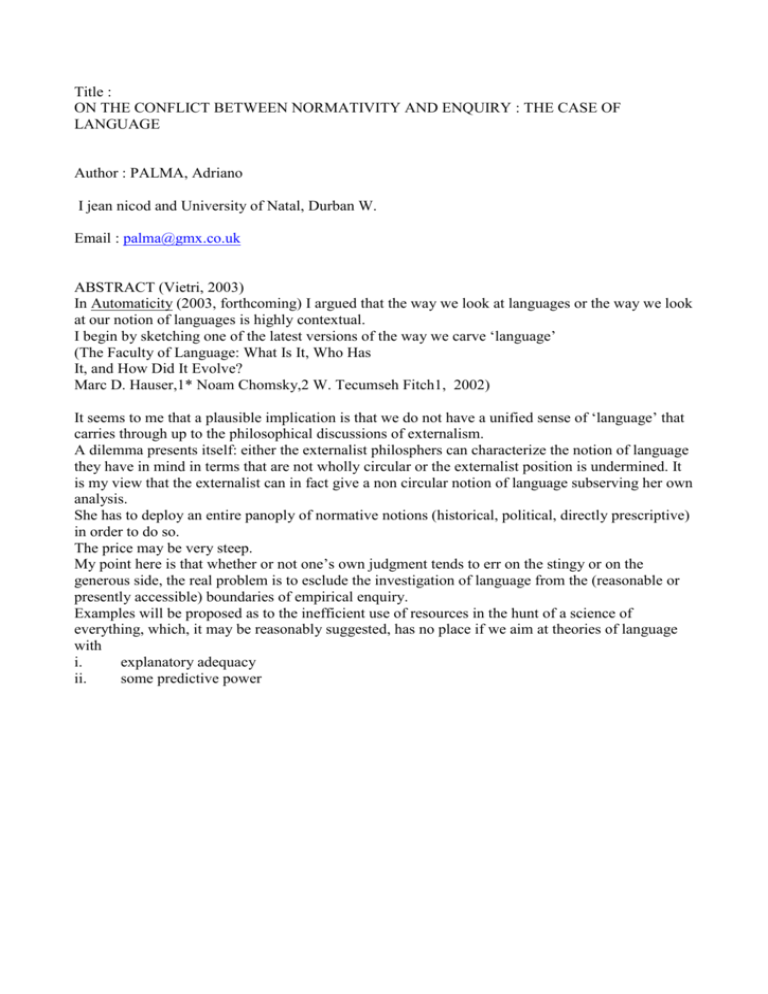
Title : ON THE CONFLICT BETWEEN NORMATIVITY AND ENQUIRY : THE CASE OF LANGUAGE Author : PALMA, Adriano I jean nicod and University of Natal, Durban W. Email : palma@gmx.co.uk ABSTRACT (Vietri, 2003) In Automaticity (2003, forthcoming) I argued that the way we look at languages or the way we look at our notion of languages is highly contextual. I begin by sketching one of the latest versions of the way we carve ‘language’ (The Faculty of Language: What Is It, Who Has It, and How Did It Evolve? Marc D. Hauser,1* Noam Chomsky,2 W. Tecumseh Fitch1, 2002) It seems to me that a plausible implication is that we do not have a unified sense of ‘language’ that carries through up to the philosophical discussions of externalism. A dilemma presents itself: either the externalist philosphers can characterize the notion of language they have in mind in terms that are not wholly circular or the externalist position is undermined. It is my view that the externalist can in fact give a non circular notion of language subserving her own analysis. She has to deploy an entire panoply of normative notions (historical, political, directly prescriptive) in order to do so. The price may be very steep. My point here is that whether or not one’s own judgment tends to err on the stingy or on the generous side, the real problem is to esclude the investigation of language from the (reasonable or presently accessible) boundaries of empirical enquiry. Examples will be proposed as to the inefficient use of resources in the hunt of a science of everything, which, it may be reasonably suggested, has no place if we aim at theories of language with i. explanatory adequacy ii. some predictive power Author : PALMA, Adriano I jean nicod and University of Natal, Durban W. Email : palma@gmx.co.uk ABSTRACT (Vietri, 2003) In Automaticity (2003, forthcoming) I argued that the way we look at languages or the way we look at our notion of languages is highly contextual. I begin by sketching one of the latest versions of the way we carve ‘language’ (R E V I E W : N E UROSCIENCE The Faculty of Language: What Is It, Who Has It, and How Did It Evolve? Marc D. Hauser,1* Noam Chomsky,2 W. Tecumseh Fitch1, 2002) It seems to me that a plausible implication is that we do not have a unified sense of ‘language’ that carries through up to the philosophical discussions of externalism. A dilemma presents itself: either the externalist philosphers can characterize the notion of language they have in mind in terms that are not wholly circular or the externalist position is undermined. It is my view that the externalist can in fact give a non circular notion of language subserving her own analysis. She has to deploy an entire panoply of normative notions (historical, political, directly prescriptive) in order to do so. The price may be very steep. My point here is that whether or not one’s own judgment tends to err on the stingy or on the generous side, the real problem is to esclude the investigation of language from the (reasonable or presently accessible) boundaries of empirical enquiry. Examples will be proposed as to the inefficient use of resources in the hunt of a science of everything, which, it may be reasonably suggested, has no place if we aim at theories of language with iii. explanatory adequacy iv. some predictive power
